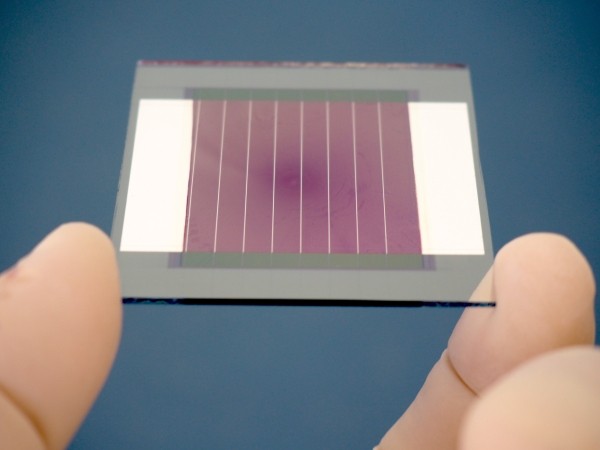Germany's Fraunhofer Institute for Solar Energy Systems ISE announced it achieved a record efficiency of 13.94% for a mini organic solar module with a surface of 9 cm2.
The panel is based on 14.9%-efficient organic PV cells with a surface of 1.1 cm2 that the same research group unveiled in September 2020. The scientists said at the time they want to explore the use of their device in large-scale, high-performance modules.
“We are really pleased at how the research is developing so positively and we’re optimistic that we will be able to make further improvements in the coming months,” said Uli Würfel, head of Organic and Perovskite Photovoltaics at Fraunhofer ISE and lead researcher at the Freiburg Materials Research Center (FMF) at the University of Freiburg, referring to the fabrication of the new module.
The solar cells were interconnected using laser structuring. “We were so pleased that it worked straightaway,” stated Jan Nekarda, head of Production Technology — Structuring and Metallization at Fraunhofer ISE in regard to the process. “Now we’re working on continuing to minimize scribe width.”
Looking forward, the research team said it wants to apply roll-to-roll methods, enabling solar modules to be produced in a similar manner as films. No more technical details on the module technology were revealed.
This content is protected by copyright and may not be reused. If you want to cooperate with us and would like to reuse some of our content, please contact: editors@pv-magazine.com.




By submitting this form you agree to pv magazine using your data for the purposes of publishing your comment.
Your personal data will only be disclosed or otherwise transmitted to third parties for the purposes of spam filtering or if this is necessary for technical maintenance of the website. Any other transfer to third parties will not take place unless this is justified on the basis of applicable data protection regulations or if pv magazine is legally obliged to do so.
You may revoke this consent at any time with effect for the future, in which case your personal data will be deleted immediately. Otherwise, your data will be deleted if pv magazine has processed your request or the purpose of data storage is fulfilled.
Further information on data privacy can be found in our Data Protection Policy.